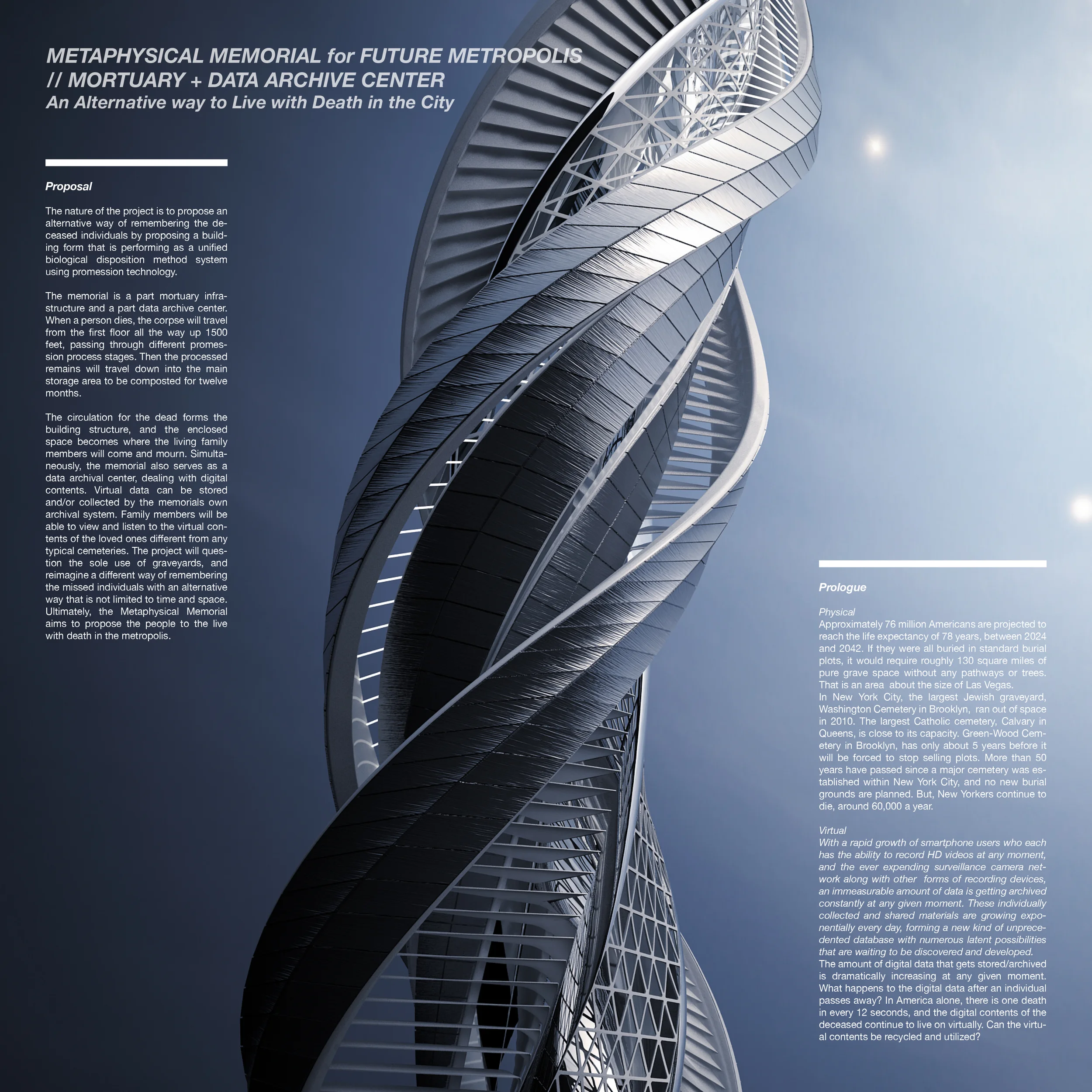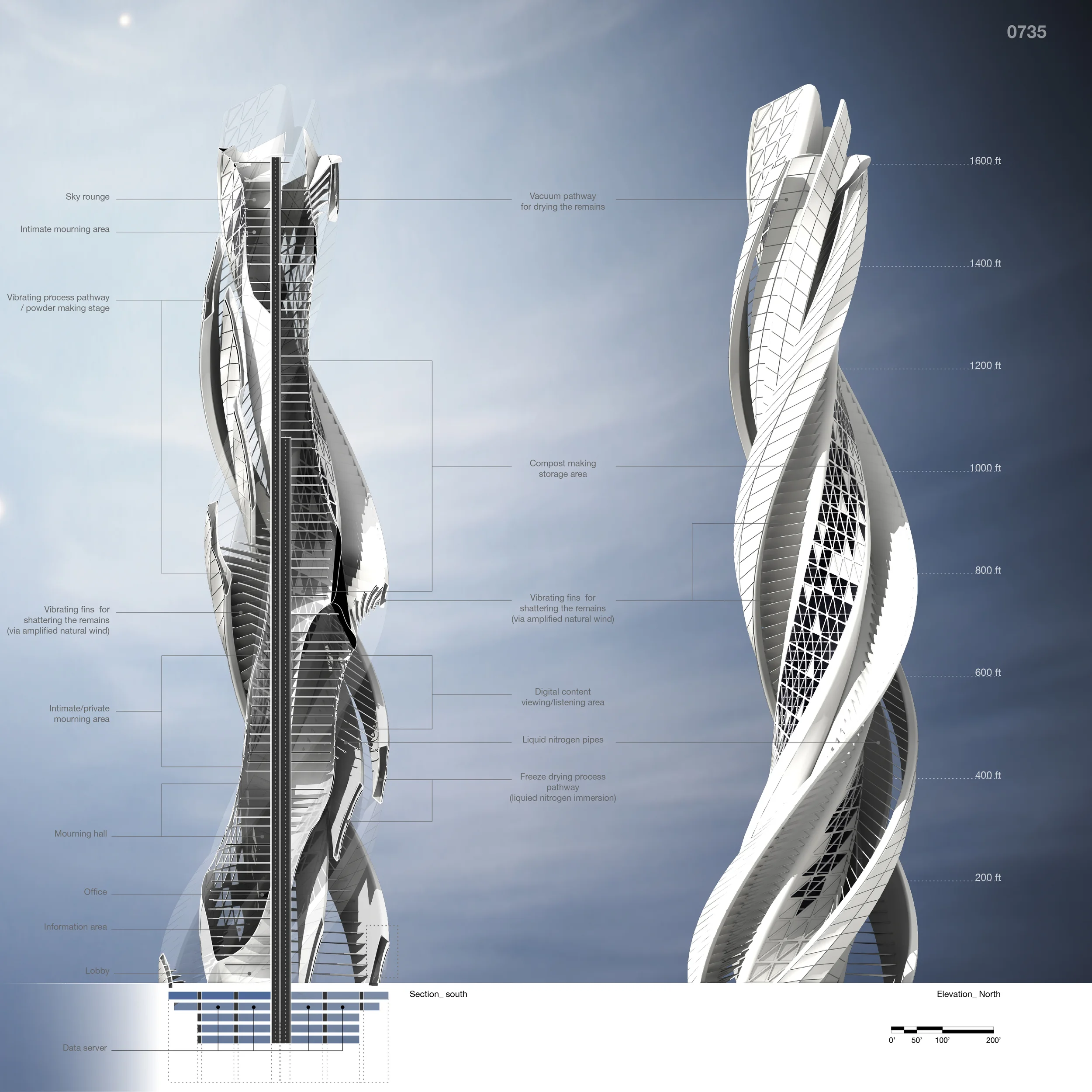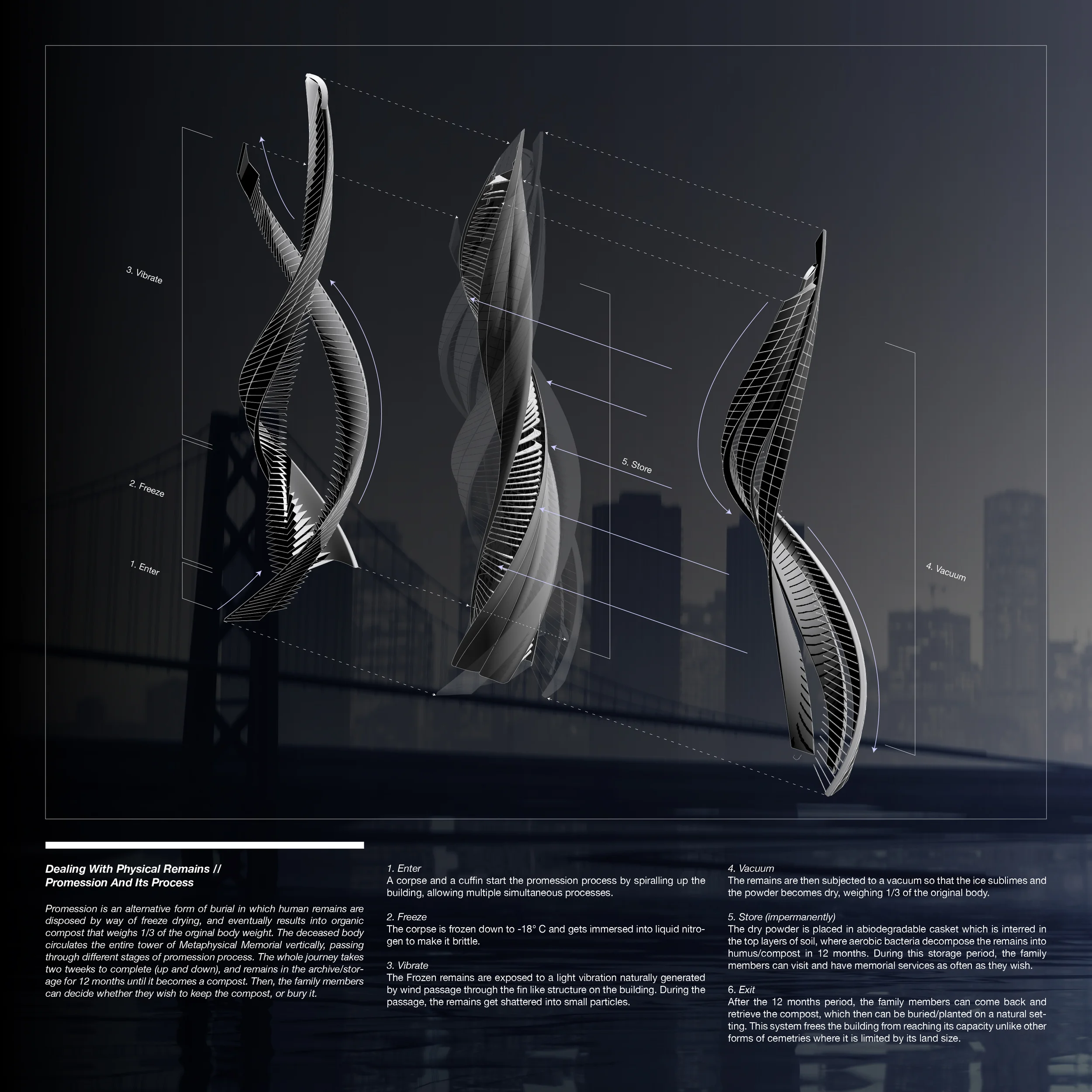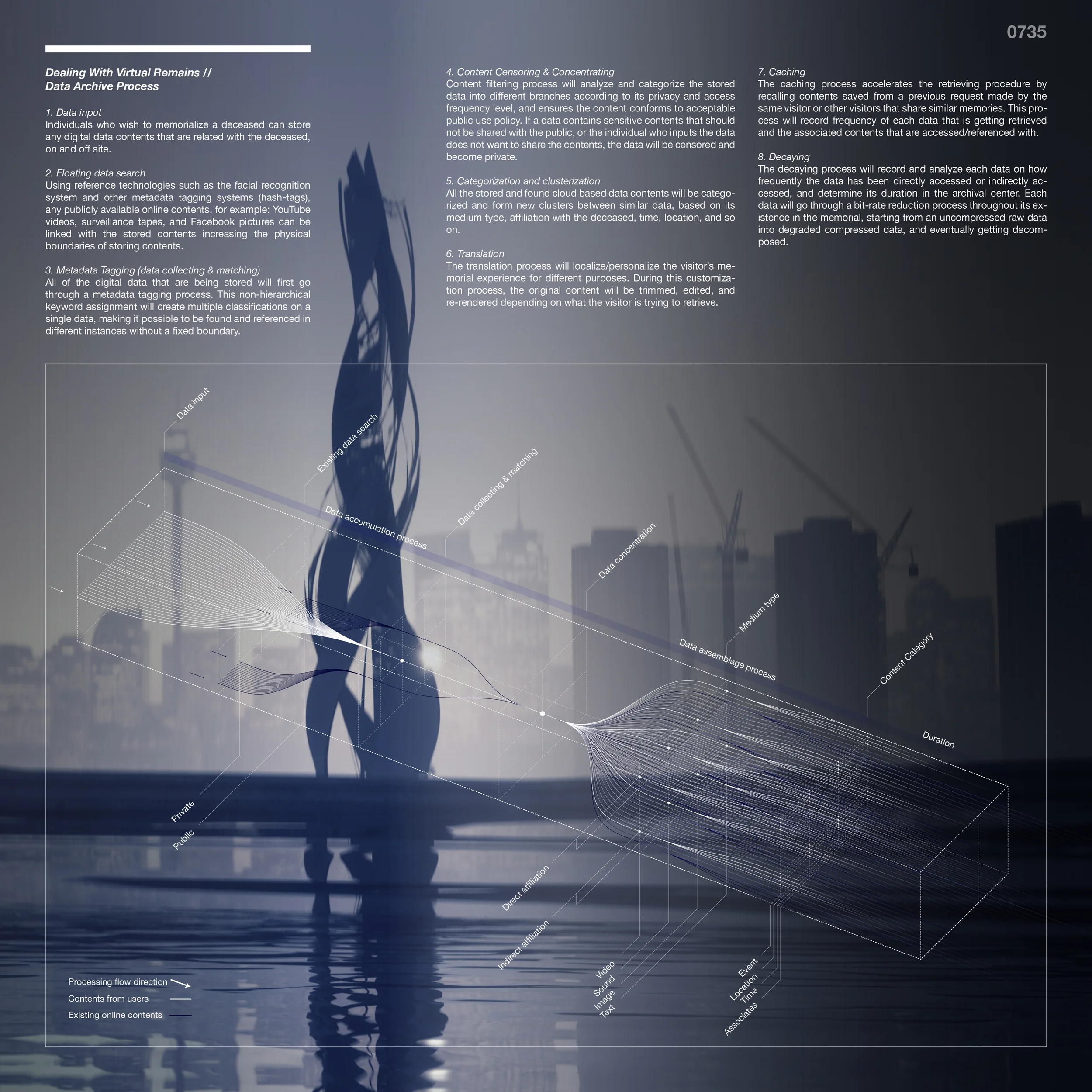Metaphysical Memorial for Future Metropolis
Competition Entry, 2013
Program: Mortuary + Memorial
Location: N/A
Partner: Cheolho Kim
Issue
Physical
Approximately 76 million Americans are projected to reach the life expectancy of 78 years, between 2024 and 2042. If they were all buried in standard burial plots, it would require roughly 130 square miles of pure grave space without any pathways or trees. That is an area about the size of Las Vegas. In New York City, the largest Jewish graveyard, Washington Cemetery in Brooklyn, ran out of space in 2010. The largest Catholic cemetery, Calvary in Queens, is close to its capacity. Green-Wood Cemetery in Brooklyn has only about 5 years before it will be forced to stop selling plots. Surprisingly, more than 50 years have passed since a major cemetery was established within New York City, and no new burial grounds are planned. But, New Yorkers continue to die, around 60,000 a year.
Virtual
With a rapid growth of smartphone users who each has the ability to record HD videos at any moment, and the ever-expending surveillance camera network along with other forms of recording devices, an immeasurable amount of data is getting archived constantly at any given moment. These individually collected and shared materials are growing exponentially every day, forming a new kind of unprecedented database with numerous latent possibilities that are waiting to be discovered and developed. What happens to the digital data after an individual passes away? In America alone, there is one death in every 12 seconds, and the digital contents of the deceased continue to live on virtually. Can the virtual contents be recycled and utilized?
Proposal
The nature of the project is to propose an alternative way of remembering the deceased individuals by proposing a building form that is performing as a unified biological disposition method system using promession technology. The deceased bodies will travel from the first floor of the building travelling all the way up 1500 feet, passing through different promession processes. Then the processed remains will travel down into the main storage area to be composted for twelve months. The circulation for the dead forms the building structure, and the enclosed space becomes where the living family members will come and mourn. Simultaneously, the memorial also serves as a data archival center, dealing with digital contents. Virtual data can be stored and/or collected by the memorials own archival system. The project will question the sole use of graveyards, and reimagine a different way of remembering the missed individuals with an alternative way that is not limited to time and space. Ultimately, the Metaphysical Memorial aims to propose the people to the live with death in the metropolis.
This project was continued/developed from an academic studio work taught by Karla Rothstein. Karla Rothstein is the director of the Dathlab at Columbia University.



